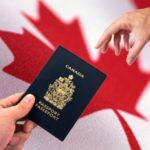Canada remains one of the most sought-after destinations for Indian professionals. Its strong economy, cultural diversity, and high employment rate make it a dream workplace for many.
If you’re an Indian job seeker wondering how to get a job in Canada from India, here’s a complete, step-by-step guide to help you begin your journey.
Why Work in Canada?
Working in Canada offers excellent career growth and personal benefits. Here are the top reasons professionals from India prefer Canada:
- Attractive Salaries: Skilled professionals earn competitive wages.
- Work-Life Balance: Flexible work culture and shorter work hours.
- Permanent Residency Options: Multiple pathways to become a PR holder.
- Global Exposure: Multicultural environment with international experience.
- Free Healthcare and Education: Benefits for you and your family.
Average Salary in Canada
| Job Type | Average Annual Salary (CAD) | Average Annual Salary (INR) |
| IT Professional | $80,000 | ₹48,00,000 |
| Registered Nurse | $70,000 | ₹42,00,000 |
| Civil Engineer | $85,000 | ₹51,00,000 |
| Accountant | $65,000 | ₹39,00,000 |
| Marketing Manager | $95,000 | ₹57,00,000 |
Conversion rate: 1 CAD = ₹60 (approx.)
Annual Increment: Employees in Canada receive an average salary increase of 8–10% per year depending on performance.
Step-by-Step Guide: How to Get a Job in Canada from India
Step 1: Create an ATS-Friendly Resume
Canadian employers use Applicant Tracking Systems (ATS) to shortlist candidates.
To pass through ATS filters:
- Use a clean, keyword-optimized resume format.
- Avoid photos or unnecessary personal details.
- Include quantifiable results and job-specific keywords.
- Add a strong LinkedIn profile to increase visibility.
A well-structured resume can increase your shortlisting chances by 70%.
Step 2: Research the Canadian Job Market
Each province in Canada has unique job demands.
Sectors currently in demand include:
- Information Technology (AI, software, cloud computing)
- Healthcare and Nursing
- Finance and Accounting
- Engineering and Construction
- Hospitality and Tourism
Use platforms like Job Bank Canada, Indeed, and LinkedIn to understand industry trends and job openings.
Step 3: Apply on Trusted Job Portals
Use the right online resources for job applications.
Some popular portals include:
- Job Bank Canada
- LinkedIn Jobs
- Monster Canada
- Glassdoor Canada
You can also approach Canadian recruitment agencies that help foreign workers connect with verified employers.
Step 4: Choose the Right Work Visa or PR Pathway
You must hold a valid work permit or PR to work legally in Canada.
| Visa Type | Description | Eligibility |
| Express Entry (FSWP) | Fast-track PR system for skilled workers. | Based on age, education, work experience, and language skills. |
| Provincial Nominee Program (PNP) | Each province selects skilled professionals. | Job offer or demand in that province. |
| Temporary Work Permit | Employer-sponsored visa for short-term work. | LMIA-approved job offer. |
If you want to stay long-term, Express Entry or PNP is the best route.
Step 5: Get Your Educational Credentials Assessed
To work or apply for PR, you must validate your Indian education with an Educational Credential Assessment (ECA).
Approved organizations include:
- World Education Services (WES)
- IQAS
- ICAS
This ensures your degree matches Canadian academic standards.
Step 6: Improve Your Language Proficiency
Fluency in English or French is essential.
Accepted tests include:
- IELTS General Training
- CELPIP
- TEF Canada (for French)
Scoring CLB 7 or higher significantly boosts your Express Entry profile and employability.
Step 7: Apply for a Canada PR Visa
A Permanent Residency (PR) visa gives you the right to live and work anywhere in Canada without employer sponsorship.
It also improves your chances of employment because:
- Employers prefer candidates with open work rights.
- You can work for any employer and switch jobs easily.
- You get access to Job Bank Canada, the government’s exclusive employment portal.
Step 8: Prepare for Job Interviews
Once shortlisted, prepare thoroughly for interviews.
Tips for success:
- Research the company and job profile.
- Practice common and role-specific interview questions.
- Maintain confidence during virtual interviews.
- Be polite and professional — Canadian employers value soft skills.
Step 9: Networking — The Secret to Faster Job Offers
Networking is one of the fastest ways to find hidden job opportunities.
You can:
- Join LinkedIn groups and engage with professionals in your field.
- Attend virtual job fairs or career events.
- Connect with Indian communities in Canada for referrals.
Many jobs in Canada are never publicly listed — networking can help you find them first.
How Long Does It Take to Get a Job in Canada?
A Workopolis survey found that most skilled workers find a job within 16 weeks.
Success depends on:
- Your profession and experience.
- Resume quality.
- Consistent follow-ups with employers.
Popular Job Roles in Demand (2025)
| Job Title | New NOC Code | Average Salary (CAD/hour) |
| Software Engineer | 21231 | 49.38 |
| Accountant | 11100 | 38.46 |
| Sales Manager | 10022 | 48.08 |
| Registered Nurse | 31301 | 40.00 |
| Electrical Engineer | 21310 | 44.50 |
| Construction Manager | 70010 | 52.88 |
(Source: Job Bank Canada, 2025)
Why Canada Is the Best Place for Indian Professionals
- Simplified Immigration Process with multiple visa options.
- Low Unemployment Rate and stable economy.
- Safe, Peaceful, and Culturally Diverse Society.
- Extensive Job Opportunities for newcomers.
- Large Indian Community for easier settlement and support.
Final Thoughts:
Landing a job in Canada from India may seem challenging, but with preparation, it’s achievable.
Focus on creating a Canadian-standard resume, researching your target industry, and applying strategically.
Canada’s growing demand for skilled professionals makes 2025 an ideal year for Indian job seekers to explore career opportunities and build a successful future abroad.
Related FAQs
Q1. Can I apply for a Canadian job without PR or work permit?
You can apply for jobs, but you must obtain a valid work permit before starting employment.
Q2. What language test should I take?
For English, take IELTS General; for French, TEF Canada is accepted.
Q3. Is Canadian work experience required to get a job?
No, but relevant international experience and skills improve your chances.
Q4. Do Canadian employers hire from India directly?
Yes, especially in healthcare, IT, and engineering — through LMIA-approved offers or global recruitment drives.
Q5. What is the average working week in Canada?
The standard full-time workweek is 37.5 to 40 hours, with flexible schedules depending on the industry.
Start your Canadian journey today — your dream job could be just one application away.
Email: info@immigrationxperts.com
Call us: +91-9999467686, +91-8447-696555






